 In this stream-of-consciousness dramatic monologue by Samuel Becket, an elderly man released from an institution against his wishes desperately tries to survive despite declining physical and mental health. He was given clothes and money, but his physical appearance made it hard to find accommodation. When he finally did find a room, he was cheated out of the money. Reduced to begging on the streets and living in squalor among rats and toads, he finally loses the will to go on. Themes include the plight of those who look “different” (rejection, alienation, indignity), resilience, mortality, the emptiness and futility of life. More…
In this stream-of-consciousness dramatic monologue by Samuel Becket, an elderly man released from an institution against his wishes desperately tries to survive despite declining physical and mental health. He was given clothes and money, but his physical appearance made it hard to find accommodation. When he finally did find a room, he was cheated out of the money. Reduced to begging on the streets and living in squalor among rats and toads, he finally loses the will to go on. Themes include the plight of those who look “different” (rejection, alienation, indignity), resilience, mortality, the emptiness and futility of life. More…
Category Archives: Novelettes
Dharma
 This story from Vikram Chandra focuses on the life of career soldier Jago Antia. In a twist on the ghost story genre, most of the action occurs in a house haunted not by the ghost of a dead inhabitant, but the “lost” spirit of Jago’s youth. A question raised by the story is Which of the many meanings of the word “dharma” does the title refer to? Superficially, it reflects Jago’s distinguished career (duty). On a deeper level, it represents the self-awareness (freedom) provided by confronting his personal ghost. Themes: modern vs. traditional beliefs, duty, self-discipline, courage, the supernatural, dharma. More…
This story from Vikram Chandra focuses on the life of career soldier Jago Antia. In a twist on the ghost story genre, most of the action occurs in a house haunted not by the ghost of a dead inhabitant, but the “lost” spirit of Jago’s youth. A question raised by the story is Which of the many meanings of the word “dharma” does the title refer to? Superficially, it reflects Jago’s distinguished career (duty). On a deeper level, it represents the self-awareness (freedom) provided by confronting his personal ghost. Themes: modern vs. traditional beliefs, duty, self-discipline, courage, the supernatural, dharma. More…
Through the Wilderness
 In this story by Dan Jacobson a nominally Jewish university graduate, whose spiritual emptiness is compared with the vast emptiness of the South African veldt, encounters a black Israelite preacher. To his lay rabbi’s delight, this prompts him to begin a search for religious enlightenment. Unfortunately, the search ends when his bigoted father forbids further communication. The Israelite’s selfless missionary zeal is contrasted with a sheep-stealing native farm hand, who realizes that setting up his own church in a black community can be more profitable than working for a wage. Themes include religion, search for meaning, death, social class, racism. More…
In this story by Dan Jacobson a nominally Jewish university graduate, whose spiritual emptiness is compared with the vast emptiness of the South African veldt, encounters a black Israelite preacher. To his lay rabbi’s delight, this prompts him to begin a search for religious enlightenment. Unfortunately, the search ends when his bigoted father forbids further communication. The Israelite’s selfless missionary zeal is contrasted with a sheep-stealing native farm hand, who realizes that setting up his own church in a black community can be more profitable than working for a wage. Themes include religion, search for meaning, death, social class, racism. More…
Caroline’s Wedding
 In this moving story from Edwidge Danticat, the Haitian-American narrator helps bridge differences between her widowed mother, who still embraces their traditional culture, and younger Americanized sister (Caroline). The mother is uneasy about Caroline’s coming marriage to a non-Haitian. She finds all sorts of problems with the man, the courtship, and the wedding preparations. However, after her traditional magic fails to separate them, she reluctantly accepts the inevitable. Themes: family bonds (mother-daughter, sister-sister, daughter-father), cultural identity (observing and handing down cultural values, traditions and beliefs), cultural differences, the price of freedom (suffering, loss, death). More…
In this moving story from Edwidge Danticat, the Haitian-American narrator helps bridge differences between her widowed mother, who still embraces their traditional culture, and younger Americanized sister (Caroline). The mother is uneasy about Caroline’s coming marriage to a non-Haitian. She finds all sorts of problems with the man, the courtship, and the wedding preparations. However, after her traditional magic fails to separate them, she reluctantly accepts the inevitable. Themes: family bonds (mother-daughter, sister-sister, daughter-father), cultural identity (observing and handing down cultural values, traditions and beliefs), cultural differences, the price of freedom (suffering, loss, death). More…
My Milk Goes Dry
 Major themes of this humorous story by Minh Quan include alienation, indoctrination, insecurity, obsession and motherhood. An orphaned Vietnamese girl grows up constantly being told that, because she was brought up on an animal (cow milk) based baby formula, she will grow into a barbarous woman devoid of human sentiment. This and many other evils, her uncle says, is all the fault of the French. The comments not only reinforce her lowest in the household childhood inferiority complex, but also lead to an unhealthy obsession with her breasts and breast-feeding when she has her own children. More…
Major themes of this humorous story by Minh Quan include alienation, indoctrination, insecurity, obsession and motherhood. An orphaned Vietnamese girl grows up constantly being told that, because she was brought up on an animal (cow milk) based baby formula, she will grow into a barbarous woman devoid of human sentiment. This and many other evils, her uncle says, is all the fault of the French. The comments not only reinforce her lowest in the household childhood inferiority complex, but also lead to an unhealthy obsession with her breasts and breast-feeding when she has her own children. More…
The Dead
 The major themes in this James Joyce masterpiece are failure to change (paralysis) and, of course, death and “the dead”. Other themes include Irish Nationalism, cultural identity, tradition, privilege, pride, and self-discovery. Gabriel, a condescending Irish intellectual, has rejected his country’s entrenched “backward” culture and embraced cosmopolitan British ways. His wife’s reaction to a little-known Irish folk-song sung by her long-dead first love brings about an epiphany. Gabriel suddenly realizes the need to take more positive steps in his own life, and how the lives of the dead can have a major influence on the living. More…
The major themes in this James Joyce masterpiece are failure to change (paralysis) and, of course, death and “the dead”. Other themes include Irish Nationalism, cultural identity, tradition, privilege, pride, and self-discovery. Gabriel, a condescending Irish intellectual, has rejected his country’s entrenched “backward” culture and embraced cosmopolitan British ways. His wife’s reaction to a little-known Irish folk-song sung by her long-dead first love brings about an epiphany. Gabriel suddenly realizes the need to take more positive steps in his own life, and how the lives of the dead can have a major influence on the living. More…
Leiningen Versus the Ants
 In today’s story by Carl Stephenson, four hundred men on a Brazilian plantation fight off an army of killer ants. Its major theme is the courage and ingenuity of (European) man against the power of nature. Other themes include the “civilizing” benefits of colonialism, racism (Leiningen is portrayed as a heroic leader, the Indian “peons” primitive and fearful) and misogyny (Critical situations first become crises when oxen or women get excited.) Ironically, despite Leiningen’s boasts about his superior intelligence and faultless preparations (which fail), it is a last-minute idea, which he had previously overlooked, that saves the day. More…
In today’s story by Carl Stephenson, four hundred men on a Brazilian plantation fight off an army of killer ants. Its major theme is the courage and ingenuity of (European) man against the power of nature. Other themes include the “civilizing” benefits of colonialism, racism (Leiningen is portrayed as a heroic leader, the Indian “peons” primitive and fearful) and misogyny (Critical situations first become crises when oxen or women get excited.) Ironically, despite Leiningen’s boasts about his superior intelligence and faultless preparations (which fail), it is a last-minute idea, which he had previously overlooked, that saves the day. More…
A Shinagawa Monkey / Confessions of a Shinagawa Monkey
 Last year (2020) Haruki Murakami released Confessions of a Shinagawa Monkey, a sequel to his 2006 story, A Shinagawa Monkey. Both deal with a talking monkey who steals items showing the names of women to whom he is attracted. By concentrating on these, he absorbs aspects of the women’s identity. Although this satisfies the Monkey’s desires towards the women, it causes them to forget their names. The monkey is a symbol for all the lonely, often overlooked people in society whose circumstances make it difficult to find love. Other themes: envy; suicide; confronting and sharing concerns; reaching out for help. More…
Last year (2020) Haruki Murakami released Confessions of a Shinagawa Monkey, a sequel to his 2006 story, A Shinagawa Monkey. Both deal with a talking monkey who steals items showing the names of women to whom he is attracted. By concentrating on these, he absorbs aspects of the women’s identity. Although this satisfies the Monkey’s desires towards the women, it causes them to forget their names. The monkey is a symbol for all the lonely, often overlooked people in society whose circumstances make it difficult to find love. Other themes: envy; suicide; confronting and sharing concerns; reaching out for help. More…
The Cheater’s Guide to Love
 It is hard to like or feel any sympathy for the American-raised Dominican Harvard professor at the centre of this story by Junot Diaz. The serial cheater who slept with fifty other women over the course of a six-year relationship belatedly realizes that the fiancé who dumped him was “the one”. Over the next six years he struggles to deal with the consequences of losing her while facing debilitating physical conditions and constant racial taunts and profiling. Themes include love vs. desire, infidelity and its consequences, heartbreak, depression, self-awareness and redemption, racism. More…
It is hard to like or feel any sympathy for the American-raised Dominican Harvard professor at the centre of this story by Junot Diaz. The serial cheater who slept with fifty other women over the course of a six-year relationship belatedly realizes that the fiancé who dumped him was “the one”. Over the next six years he struggles to deal with the consequences of losing her while facing debilitating physical conditions and constant racial taunts and profiling. Themes include love vs. desire, infidelity and its consequences, heartbreak, depression, self-awareness and redemption, racism. More…
Last Evenings on Earth
 In this thought-provoking story from Roberto Bolaño, a father and his twenty-two-year-old son go on an ill-fated vacation together. The two men are very different. The father is a sociable truck-driver who likes a good time, usually involving alcohol and women. Although no prude, his son is a broody intellectual who enjoys reading poetry. The holiday appears doomed from the start. Despite some tender moments, a tone of impending disaster builds throughout the story. It is fitting that, when danger finally strikes, father and son face it together. We aren’t told the outcome, because it’s not important to the story. More…
In this thought-provoking story from Roberto Bolaño, a father and his twenty-two-year-old son go on an ill-fated vacation together. The two men are very different. The father is a sociable truck-driver who likes a good time, usually involving alcohol and women. Although no prude, his son is a broody intellectual who enjoys reading poetry. The holiday appears doomed from the start. Despite some tender moments, a tone of impending disaster builds throughout the story. It is fitting that, when danger finally strikes, father and son face it together. We aren’t told the outcome, because it’s not important to the story. More…
The Chance
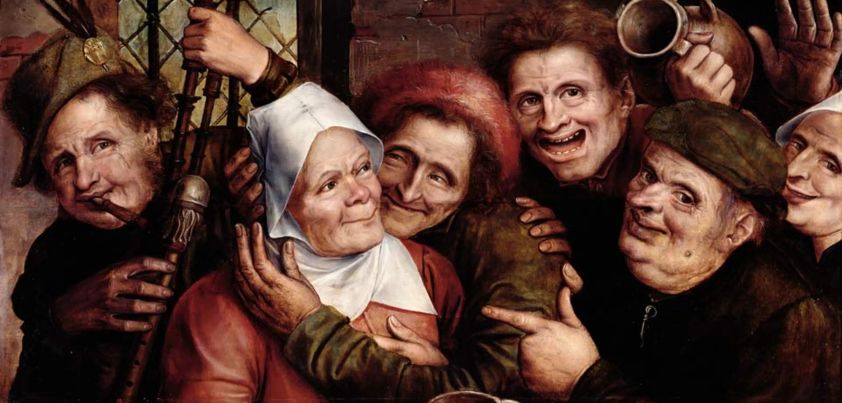 In this story by Peter Carey, a bitter old man looks back on a time when he desperately tried to prevent his attractive lover from making herself ugly in a genetic lottery known as “The Chance”. The lottery, in which winners could alter their age or body shape, was run by alien invaders. Physical beauty was a social liability at the time and, as a member of a revolutionary movement intent on overthrowing the aliens, she was prepared to sacrifice her looks to remain anonymous. Themes include alcohol and drug abuse, love, chance, perceptions of beauty, courage, sacrifice. More…
In this story by Peter Carey, a bitter old man looks back on a time when he desperately tried to prevent his attractive lover from making herself ugly in a genetic lottery known as “The Chance”. The lottery, in which winners could alter their age or body shape, was run by alien invaders. Physical beauty was a social liability at the time and, as a member of a revolutionary movement intent on overthrowing the aliens, she was prepared to sacrifice her looks to remain anonymous. Themes include alcohol and drug abuse, love, chance, perceptions of beauty, courage, sacrifice. More…
Hunted Down
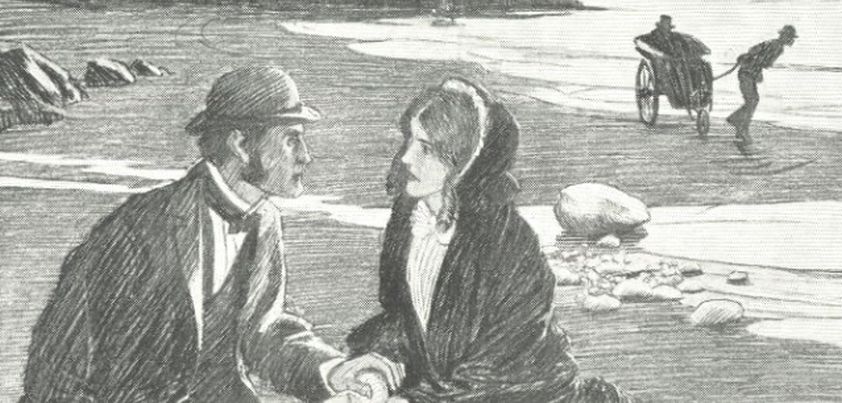 Although the language is that of the mid-Victorian era (occasional archaic vocabulary and long, formal sentences), this witty, detective-style story from Charles Dickens has a climax that would do Agatha Christie proud. The protagonist, a manager in an insurance office, leads us through the rather convoluted tale. With at least one murder and two more on the way, it is not until the end that readers learn that the real “detective” on the killer’s trail is not the protagonist, but one of his intended victims. Themes: first impressions (appearance/body language), deception, murder, justice, love, guilt. More…
Although the language is that of the mid-Victorian era (occasional archaic vocabulary and long, formal sentences), this witty, detective-style story from Charles Dickens has a climax that would do Agatha Christie proud. The protagonist, a manager in an insurance office, leads us through the rather convoluted tale. With at least one murder and two more on the way, it is not until the end that readers learn that the real “detective” on the killer’s trail is not the protagonist, but one of his intended victims. Themes: first impressions (appearance/body language), deception, murder, justice, love, guilt. More…
The Pagan Rabbi
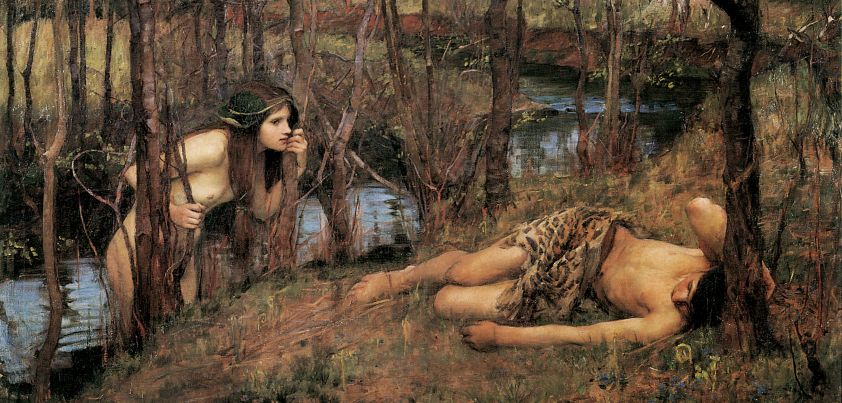 This story from Cynthia Ozick is about a highly respected Jewish scholar who is driven to suicide as he tries to reconcile the strict tenets of his religion with the philosophical (pagan) concept of immortal “free souls” existing in Nature. This so affects the rabbi’s mind that his suicide note refers to several encounters with a dryad (wood nymph). Some of these are sexual, which he clumsily tries to rationalize with: Scripture does not forbid sodomy with the plants! Themes: Jewish identity; marriage and family; friendship; philosophy (search for meaning in Nature); death; sanity/suicide; (lack of) understanding and forgiveness. More…
This story from Cynthia Ozick is about a highly respected Jewish scholar who is driven to suicide as he tries to reconcile the strict tenets of his religion with the philosophical (pagan) concept of immortal “free souls” existing in Nature. This so affects the rabbi’s mind that his suicide note refers to several encounters with a dryad (wood nymph). Some of these are sexual, which he clumsily tries to rationalize with: Scripture does not forbid sodomy with the plants! Themes: Jewish identity; marriage and family; friendship; philosophy (search for meaning in Nature); death; sanity/suicide; (lack of) understanding and forgiveness. More…
Mrs Plum
 Set in 1960s Johannesburg, this story by Es’kia (Ezekiel) Mphahlele follows Karabo, a nineteen-year-old house-servant working for the enigmatic Mrs Plum. On the surface, Mrs Plum is an enlightened activist who helps Karabo improve herself and campaigns for better treatment for black South Africans. In naming the story Mrs Plum, Mphahlele hints at its major theme: the hypocrisy of many white liberals under apartheid. Deep down Mrs Plum still harbors racist sentiments, cares little for Karabo as a person, and is prone to perversion. Other themes include racism and civil rights, identity, family, personal growth and development, self-awareness and assertiveness. More…
Set in 1960s Johannesburg, this story by Es’kia (Ezekiel) Mphahlele follows Karabo, a nineteen-year-old house-servant working for the enigmatic Mrs Plum. On the surface, Mrs Plum is an enlightened activist who helps Karabo improve herself and campaigns for better treatment for black South Africans. In naming the story Mrs Plum, Mphahlele hints at its major theme: the hypocrisy of many white liberals under apartheid. Deep down Mrs Plum still harbors racist sentiments, cares little for Karabo as a person, and is prone to perversion. Other themes include racism and civil rights, identity, family, personal growth and development, self-awareness and assertiveness. More…
One Day
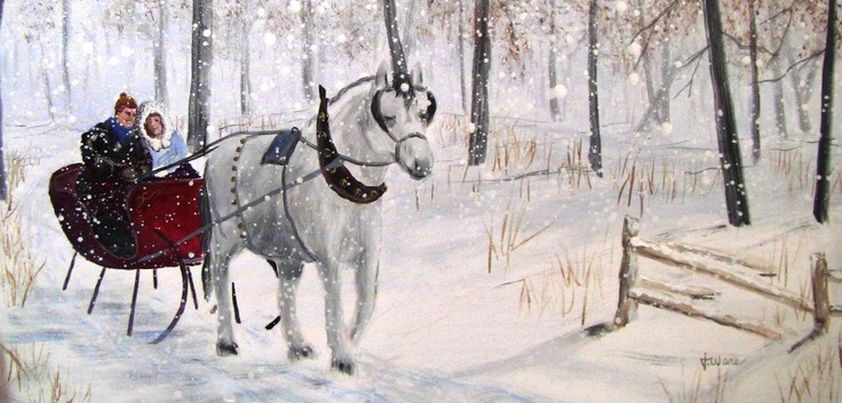 In this story by Bjørnstjerne Bjørnson, a timid Norwegian teenager becomes infatuated with an older villager whose voice moves her to tears at a choral performance. In his absence overseas, she is wooed by and finally marries a handsome sea captain. Within five years, she has two children and lives in fear of her dominating, hard drinking husband’s homecomings. She is enlivened when her teenage idol returns and is a regular visitor. They become close, but her hopes are crushed when, on a special outing together, he reveals his true self. Themes include unrequited love, obsession, loveless marriage, alcoholism, heartache. More…
In this story by Bjørnstjerne Bjørnson, a timid Norwegian teenager becomes infatuated with an older villager whose voice moves her to tears at a choral performance. In his absence overseas, she is wooed by and finally marries a handsome sea captain. Within five years, she has two children and lives in fear of her dominating, hard drinking husband’s homecomings. She is enlivened when her teenage idol returns and is a regular visitor. They become close, but her hopes are crushed when, on a special outing together, he reveals his true self. Themes include unrequited love, obsession, loveless marriage, alcoholism, heartache. More…
A Simple Heart / Soul
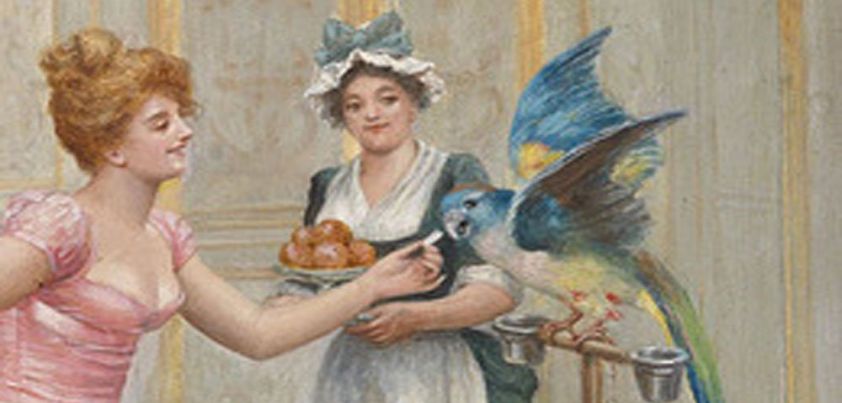 Set in nineteenth century France, this story by Gustav Flaubert portrays the life of an uneducated, simple-minded country girl who lives through fifty years of drudgery as house servant to a “disagreeable” woman who has fallen on hard times. The girl’s story evokes feelings of both admiration and sympathy: Admiration for her loyalty, piety, kindness and failure to give in to despair; Sympathy for her shameless exploitation, history of disappointment and loss, and misery and suffering approaching death. Themes: innocence; duty, faith and virtue; love and compassion; social class; wealth, poverty and exploitation; suffering, loss and death. More…
Set in nineteenth century France, this story by Gustav Flaubert portrays the life of an uneducated, simple-minded country girl who lives through fifty years of drudgery as house servant to a “disagreeable” woman who has fallen on hard times. The girl’s story evokes feelings of both admiration and sympathy: Admiration for her loyalty, piety, kindness and failure to give in to despair; Sympathy for her shameless exploitation, history of disappointment and loss, and misery and suffering approaching death. Themes: innocence; duty, faith and virtue; love and compassion; social class; wealth, poverty and exploitation; suffering, loss and death. More…
Pigeon Feathers
 John Updike’s Pigeon Feathers is a web of conflicts and satire. The central conflict is thirteen-year-old David’s crisis of faith, which he ultimately resolves through an epiphany born out of bloody violence. David’s questioning leads to conflict with the family church minister, who dismisses his concerns by inanely equating Heaven to the “goodness” of Abraham Lincoln. Unresolved conflicts include country vs. city living, and the organic (the land has a soul) vs. chemical (the earth is nothing but chemicals) farming debate between David’s parents. Themes: environmentalism, aging and death, family, isolation, spirituality, science vs. religion, the wonder of nature, faith. More…
John Updike’s Pigeon Feathers is a web of conflicts and satire. The central conflict is thirteen-year-old David’s crisis of faith, which he ultimately resolves through an epiphany born out of bloody violence. David’s questioning leads to conflict with the family church minister, who dismisses his concerns by inanely equating Heaven to the “goodness” of Abraham Lincoln. Unresolved conflicts include country vs. city living, and the organic (the land has a soul) vs. chemical (the earth is nothing but chemicals) farming debate between David’s parents. Themes: environmentalism, aging and death, family, isolation, spirituality, science vs. religion, the wonder of nature, faith. More…
Neighbour Rosicky
 This heart-warming story from Willa Cather exemplifies all that is said to be good about life in rural America. Anton Rosicky followed other impoverished Czech immigrants seeking a better life overseas. Assisted by small acts of kindness along the way, he reaches America where he acquires a modest farm and raises a large, contented family. This is quite a long story with many themes: love, family values, neighborliness, doing what’s right vs. chasing money, city vs. country living, connection, hard work, contentment, reminiscing and (with a grandchild on the way as Anton dies) the cycle of life. More…
This heart-warming story from Willa Cather exemplifies all that is said to be good about life in rural America. Anton Rosicky followed other impoverished Czech immigrants seeking a better life overseas. Assisted by small acts of kindness along the way, he reaches America where he acquires a modest farm and raises a large, contented family. This is quite a long story with many themes: love, family values, neighborliness, doing what’s right vs. chasing money, city vs. country living, connection, hard work, contentment, reminiscing and (with a grandchild on the way as Anton dies) the cycle of life. More…
The Overcoat (The Cloak)
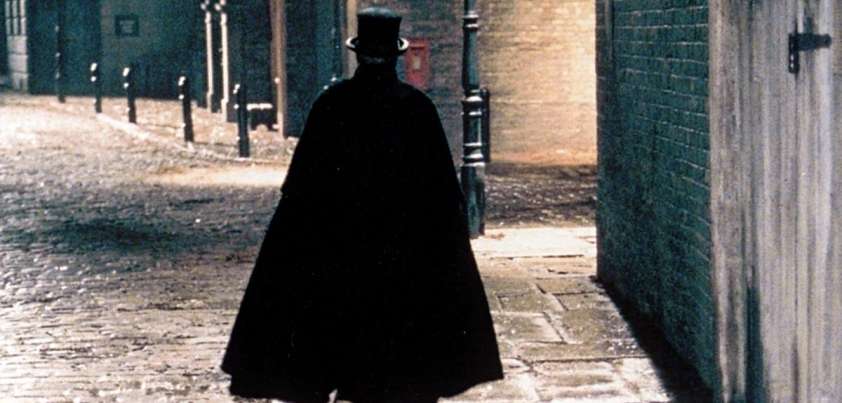 This story by Nikolai Gogol, described by Vladimir Nabokov as the greatest Russian short story ever written, uses pathos and dry humor to get its messages across. The protagonist represents Russia’s working class, eking out a living in a tedious, low-level job. Things improve dramatically when a windfall allows him to buy a new overcoat. Sadly, after a mugger steals the coat, shortcomings in the justice system and failing health contribute to his death. Perhaps metaphorically, his ghost rises up and terrorizes the city in retribution. Themes: alienation, (lack of) connection and compassion, bureaucracy, materialism, social class, the supernatural, revenge. More…
This story by Nikolai Gogol, described by Vladimir Nabokov as the greatest Russian short story ever written, uses pathos and dry humor to get its messages across. The protagonist represents Russia’s working class, eking out a living in a tedious, low-level job. Things improve dramatically when a windfall allows him to buy a new overcoat. Sadly, after a mugger steals the coat, shortcomings in the justice system and failing health contribute to his death. Perhaps metaphorically, his ghost rises up and terrorizes the city in retribution. Themes: alienation, (lack of) connection and compassion, bureaucracy, materialism, social class, the supernatural, revenge. More…
Sorrow-Acre
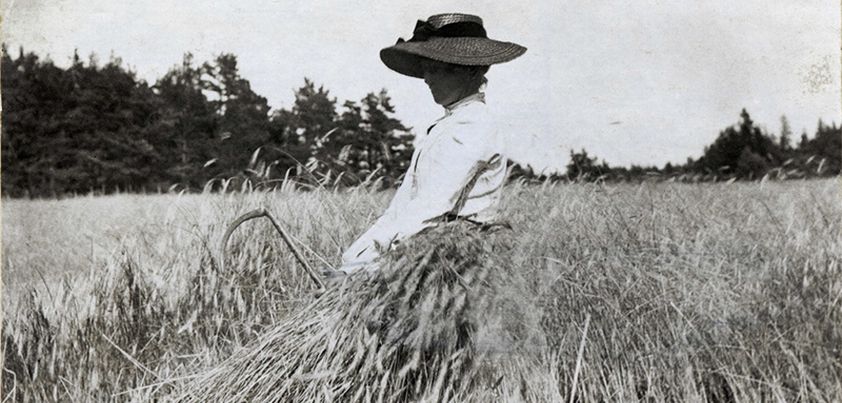 This story by Isak Dinesen (aka Karen Blixen) has an “overall” plot, a “subordinate” plot, and an “incomplete” plot. The overall plot considers how moves towards democracy elsewhere in Europe might affect late eighteenth-century Danish society. The subordinate plot (the tragic story of a mother given a near-impossible task to save her son) illustrates why change is necessary, and the difficulty the ruling class will have in adjusting to it. The incomplete plot (see below) foreshadows a possible affair between the protagonist and his seventeen-year-old love-starved aunt. Themes: culture and tradition, birthright, duty, feudalism vs. democracy, injustice, motherhood, suffering. More…
This story by Isak Dinesen (aka Karen Blixen) has an “overall” plot, a “subordinate” plot, and an “incomplete” plot. The overall plot considers how moves towards democracy elsewhere in Europe might affect late eighteenth-century Danish society. The subordinate plot (the tragic story of a mother given a near-impossible task to save her son) illustrates why change is necessary, and the difficulty the ruling class will have in adjusting to it. The incomplete plot (see below) foreshadows a possible affair between the protagonist and his seventeen-year-old love-starved aunt. Themes: culture and tradition, birthright, duty, feudalism vs. democracy, injustice, motherhood, suffering. More…
The Colour Out of Space
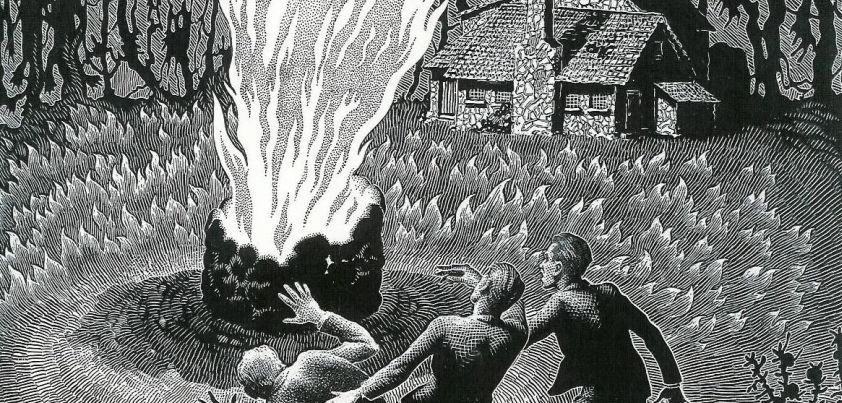 In this cosmic horror story by H. P. Lovecraft, a surveyor becomes curious about five acres of grey desolation known as “blasted heath”. He learns that a meteor like no other found on earth had landed near a farmhouse on the site. Within the meteor scientists found a globule of unearthly colour which, when cracked open, released a presence that caused every living thing nearby to mutate. Plants grew unnaturally large but were inedible. Animal life, including the farming family, went mad and deformed into grotesque shapes before dying. Themes include curiosity, fear, scepticism, the supernatural, realms beyond human understanding. More…
In this cosmic horror story by H. P. Lovecraft, a surveyor becomes curious about five acres of grey desolation known as “blasted heath”. He learns that a meteor like no other found on earth had landed near a farmhouse on the site. Within the meteor scientists found a globule of unearthly colour which, when cracked open, released a presence that caused every living thing nearby to mutate. Plants grew unnaturally large but were inedible. Animal life, including the farming family, went mad and deformed into grotesque shapes before dying. Themes include curiosity, fear, scepticism, the supernatural, realms beyond human understanding. More…
The Million Pound Bank Note
 This humorous story from Samuel Clemens (aka Mark Twain) explores two themes related to the power of money. The first is the different attitudes people have towards the rich and the poor. The second, which is particularly relevant today, is the power the rich (influencers) can exert over the decision-making of admirers (followers). Other themes: enduring love (Portia and Henry’s relationship prospers, despite their playful deceptions); honesty (Henry’s intention to pay back his debts); and the peculiarities of British High Society (settling arguments with bets, determining social position through gossip columns, and missing meals if unable to decide seating precedence). More…
This humorous story from Samuel Clemens (aka Mark Twain) explores two themes related to the power of money. The first is the different attitudes people have towards the rich and the poor. The second, which is particularly relevant today, is the power the rich (influencers) can exert over the decision-making of admirers (followers). Other themes: enduring love (Portia and Henry’s relationship prospers, despite their playful deceptions); honesty (Henry’s intention to pay back his debts); and the peculiarities of British High Society (settling arguments with bets, determining social position through gossip columns, and missing meals if unable to decide seating precedence). More…
Barn Burning
 Barn Burning by William Faulkner is a story of how a ten-year-old boy rises above the intimidation and bullying of his embittered father. The father’s simmering anger stems from jealousy and lack of respect, fueled by an exploitative sharecropping system that keeps tenant families like his in perpetual poverty. He seeks retribution through senseless acts of arson (barn burning) against landholders he believes have slighted him. The boy, sensing the immorality of his father’s actions, has the courage to rebel and do something about it. Themes: family, class, alienation, exploitation, pride, anger, revenge, loyalty vs. morality, courage, betrayal. More…
Barn Burning by William Faulkner is a story of how a ten-year-old boy rises above the intimidation and bullying of his embittered father. The father’s simmering anger stems from jealousy and lack of respect, fueled by an exploitative sharecropping system that keeps tenant families like his in perpetual poverty. He seeks retribution through senseless acts of arson (barn burning) against landholders he believes have slighted him. The boy, sensing the immorality of his father’s actions, has the courage to rebel and do something about it. Themes: family, class, alienation, exploitation, pride, anger, revenge, loyalty vs. morality, courage, betrayal. More…
A Girl Like Phyl
 The major themes of this story by Patricia Highsmith are shattered dreams, hypocrisy, betrayal and the fragile nature of identity. A chance meeting with an eighteen-year-old girl at an airport revives bittersweet memories for a successful, seemingly happily married businessman. The girl, who bears a striking resemblance to his long obsessed over ex-girlfriend Phyl, later ends up in his hotel room and tries to seduce him. When he learns the next day that she is Phyl’s daughter and observes Phyl berating her for spending the night in a stranger’s room, his self-esteem and outlook on life are destroyed. More…
The major themes of this story by Patricia Highsmith are shattered dreams, hypocrisy, betrayal and the fragile nature of identity. A chance meeting with an eighteen-year-old girl at an airport revives bittersweet memories for a successful, seemingly happily married businessman. The girl, who bears a striking resemblance to his long obsessed over ex-girlfriend Phyl, later ends up in his hotel room and tries to seduce him. When he learns the next day that she is Phyl’s daughter and observes Phyl berating her for spending the night in a stranger’s room, his self-esteem and outlook on life are destroyed. More…
Camp Cataract
 This story from Jane Bowles examines the toxic relationship between three troubled sisters who share a city apartment. One of them is midway through a ten-week holiday in a Camp Cataract cabin as part of a long-term plan to move out and live independently. When another turns up uninvited, hoping to convince her to cut the holiday short, they arrange to meet for lunch the next day. Both have different recollections of what happens the following morning. Madness intervenes, and only one of them survives the day. Themes: self-analysis, identity, independence, mental illness, spinsterhood, female relationships. More…
This story from Jane Bowles examines the toxic relationship between three troubled sisters who share a city apartment. One of them is midway through a ten-week holiday in a Camp Cataract cabin as part of a long-term plan to move out and live independently. When another turns up uninvited, hoping to convince her to cut the holiday short, they arrange to meet for lunch the next day. Both have different recollections of what happens the following morning. Madness intervenes, and only one of them survives the day. Themes: self-analysis, identity, independence, mental illness, spinsterhood, female relationships. More…
The Gioconda Smile
 Superficially Aldous Huxley’s Gioconda Smile is a straightforward story about a narcissistic womanizer who learns to his cost the meaning of the expression: Hell hath no fury like a woman scorned. On another level, it is a wonderful satire of the lavish, hedonistic lifestyles of upper-middle-class 1920s British society. The protagonist’s apparent lack of conscience may be due to his admitted psychopathy (not only did he not feel sympathy for the poor, the weak, the diseased, and deformed; he actually hated them). This raises the question: did he really deserve his fate? Themes: vanity, philandering, class, passion, murder, rejection, betrayal. More…
Superficially Aldous Huxley’s Gioconda Smile is a straightforward story about a narcissistic womanizer who learns to his cost the meaning of the expression: Hell hath no fury like a woman scorned. On another level, it is a wonderful satire of the lavish, hedonistic lifestyles of upper-middle-class 1920s British society. The protagonist’s apparent lack of conscience may be due to his admitted psychopathy (not only did he not feel sympathy for the poor, the weak, the diseased, and deformed; he actually hated them). This raises the question: did he really deserve his fate? Themes: vanity, philandering, class, passion, murder, rejection, betrayal. More…
The Adventure of the Speckled Band
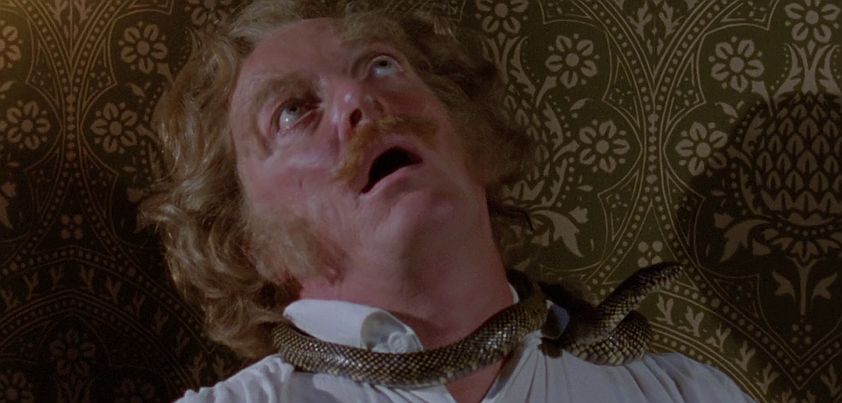 This story, considered by Arthur Conan Doyle to be his best Sherlock Holmes mystery, features one of his most creative (and unlikeliest) murder plots. Thirty-year-old Helen, Holmes’s client, is a victim of Victorian attitudes towards women. Fearing for their future, her dead mother had decided that she and twin sister Julia would not receive their inheritances until they married. Their violent stepfather, who manages the money, will become destitute should either of them wed. After announcing her engagement, Julia dies under mysterious circumstances. Helen fears that she will be next. Themes: decay, isolation, fear, murder, class, greed, hasty judgement, justice. More…
This story, considered by Arthur Conan Doyle to be his best Sherlock Holmes mystery, features one of his most creative (and unlikeliest) murder plots. Thirty-year-old Helen, Holmes’s client, is a victim of Victorian attitudes towards women. Fearing for their future, her dead mother had decided that she and twin sister Julia would not receive their inheritances until they married. Their violent stepfather, who manages the money, will become destitute should either of them wed. After announcing her engagement, Julia dies under mysterious circumstances. Helen fears that she will be next. Themes: decay, isolation, fear, murder, class, greed, hasty judgement, justice. More…
Rappaccini’s Daughter
 This story from Nathaniel Hawthorne takes the “mad scientist” motif to a new level. Renowned physician Rappicini is fascinated with the curative power of deadly plants. An experiment that makes his young daughter immune to their poison comes at a terrible price: her skin and breath become toxic to others. As the poor girl grows into womanhood, the twisted doctor decides to make a potential partner immune to her poison. Unfortunately for all, a scientific rival plants a different kind of poison in the man’s heart and hands. Themes: science vs. morality, innocence, nature, oppression, isolation, envy, love, betrayal. More…
This story from Nathaniel Hawthorne takes the “mad scientist” motif to a new level. Renowned physician Rappicini is fascinated with the curative power of deadly plants. An experiment that makes his young daughter immune to their poison comes at a terrible price: her skin and breath become toxic to others. As the poor girl grows into womanhood, the twisted doctor decides to make a potential partner immune to her poison. Unfortunately for all, a scientific rival plants a different kind of poison in the man’s heart and hands. Themes: science vs. morality, innocence, nature, oppression, isolation, envy, love, betrayal. More…
In the Tunnel
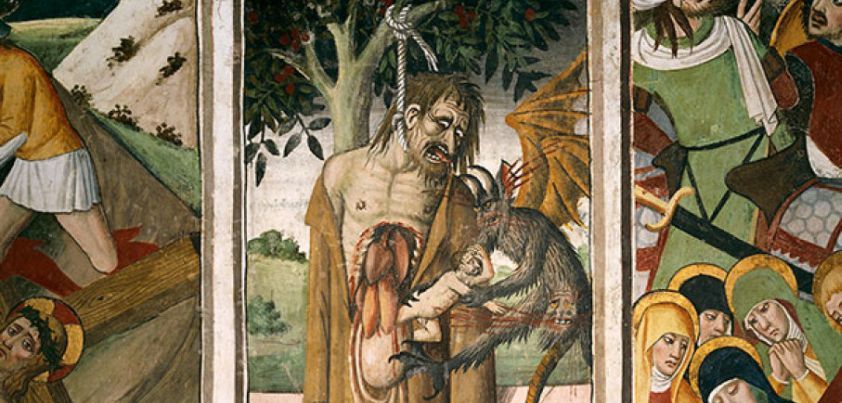 This story from Mavis Gallant deals with the experiences of a Canadian college student “banished” to Europe by her strict father to end an affair with a married professor. While there, she falls prey to a troubled older man who appears practiced in picking up vulnerable young woman and discarding them immediately something happens that is not to his liking. Their time together, living in his “tunnel-like” room in the garden of an eccentric, thoroughly dislikeable British couple, is not what she expected. Themes: amoureuse mal placé (misplaced love), independence, exploitation, betrayal, cruelty, politics, aging, identity.
This story from Mavis Gallant deals with the experiences of a Canadian college student “banished” to Europe by her strict father to end an affair with a married professor. While there, she falls prey to a troubled older man who appears practiced in picking up vulnerable young woman and discarding them immediately something happens that is not to his liking. Their time together, living in his “tunnel-like” room in the garden of an eccentric, thoroughly dislikeable British couple, is not what she expected. Themes: amoureuse mal placé (misplaced love), independence, exploitation, betrayal, cruelty, politics, aging, identity.
More…
Oh, Whistle and I’ll Come To You, My Lad
 In this story by M. R. James, a colleague asks a young university professor to scope out some monastic ruins for a possible archaeological dig while away on a golfing holiday. As he investigates the area near what would have been the altar, he finds an artificial cavity in the masonry that contains an ancient bronze whistle with strange inscriptions. He was originally unhappy that the only available room in his hotel had two beds but this proves fortunate, providing the terrifying personage he “whistles up” a place to spend the night. Themes include fear, agnosticism, the supernatural. More…
In this story by M. R. James, a colleague asks a young university professor to scope out some monastic ruins for a possible archaeological dig while away on a golfing holiday. As he investigates the area near what would have been the altar, he finds an artificial cavity in the masonry that contains an ancient bronze whistle with strange inscriptions. He was originally unhappy that the only available room in his hotel had two beds but this proves fortunate, providing the terrifying personage he “whistles up” a place to spend the night. Themes include fear, agnosticism, the supernatural. More…
Big Blonde
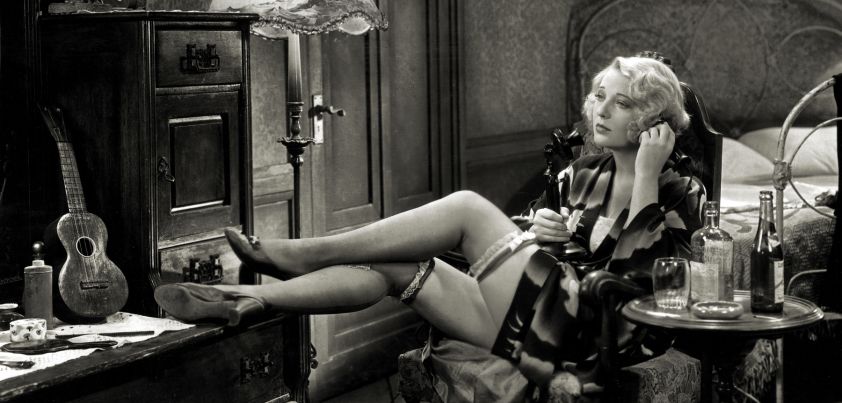 This rather depressing story from Dorothy Parker exposes the different socioeconomic standing and sexual standards applicable to men and women in 1920s America. The protagonist (Hazel) falls from being a popular plus-size model to a depressed middle-aged alcoholic. The cause of her decline lies in extreme moods that sour relationships with her husband and the other hard-drinking men in her life. Forced into a demeaning series of casual affairs with married men who pay her keep in expectation of sexual services, she sees only one pathway to lasting peace. Themes: body image, vulnerability, sexual exploitation, loss of identity/self-esteem, depression, alcoholism. More…
This rather depressing story from Dorothy Parker exposes the different socioeconomic standing and sexual standards applicable to men and women in 1920s America. The protagonist (Hazel) falls from being a popular plus-size model to a depressed middle-aged alcoholic. The cause of her decline lies in extreme moods that sour relationships with her husband and the other hard-drinking men in her life. Forced into a demeaning series of casual affairs with married men who pay her keep in expectation of sexual services, she sees only one pathway to lasting peace. Themes: body image, vulnerability, sexual exploitation, loss of identity/self-esteem, depression, alcoholism. More…
Spiderweb
 Although there is no spider in this story by Mariana Enriquez, the Argentinian protagonist is trapped in a web of her own making. Marrying “impetuously” at a young age, she finds herself trapped in a relationship with a nagging, controlling man she hates. When the couple go on a trip into the wilds of Paraguay with her psychic cousin, he also proves to be dangerously naïve and impractical. The morning after a dinner conversation involving mystical experiences and unexplained disappearances, she wakes to find her problem solved. Themes include marriage, submission vs. assertiveness, political injustice and violence, the supernatural. More…
Although there is no spider in this story by Mariana Enriquez, the Argentinian protagonist is trapped in a web of her own making. Marrying “impetuously” at a young age, she finds herself trapped in a relationship with a nagging, controlling man she hates. When the couple go on a trip into the wilds of Paraguay with her psychic cousin, he also proves to be dangerously naïve and impractical. The morning after a dinner conversation involving mystical experiences and unexplained disappearances, she wakes to find her problem solved. Themes include marriage, submission vs. assertiveness, political injustice and violence, the supernatural. More…
Amnesty
 In this story by Octavia Butler, Earth’s economy collapses following the arrival of an advanced alien race that settles in the world’s deserts. A reluctant co-existence develops when it becomes clear that the aliens cannot be destroyed. The protagonist, kidnapped by the aliens at age eleven and subjected to cruel experiments, is now an Interpreter for one of their “communities”. Her current mission: to “calm” and prepare six recruits for well-paid positions translating for other communities. Although they need the job, the applicants are full of anger and hostility towards the aliens. Themes: fear, ignorance, social experimentation, torture, hatred, détente. More…
In this story by Octavia Butler, Earth’s economy collapses following the arrival of an advanced alien race that settles in the world’s deserts. A reluctant co-existence develops when it becomes clear that the aliens cannot be destroyed. The protagonist, kidnapped by the aliens at age eleven and subjected to cruel experiments, is now an Interpreter for one of their “communities”. Her current mission: to “calm” and prepare six recruits for well-paid positions translating for other communities. Although they need the job, the applicants are full of anger and hostility towards the aliens. Themes: fear, ignorance, social experimentation, torture, hatred, détente. More…
The Schreuderspitze
 In this story by Mark Helprin, a grieving German photographer finds a unique way of getting over the accidental death of his wife and son. Two years after the accident, he disappears without trace. Leaving his lodgings and photographic equipment behind, he relocates to a small, remote town in the Alps. There, he decides to become a mountain climber and ascend the dangerous Schreuderspitze peak alone. He trains hard, teaches himself how to climb from books, buys the necessary equipment, and “succeeds” in a most unusual way. Themes include loss, grief, escape, isolation, a quest, dreams vs. reality, renewal. More…
In this story by Mark Helprin, a grieving German photographer finds a unique way of getting over the accidental death of his wife and son. Two years after the accident, he disappears without trace. Leaving his lodgings and photographic equipment behind, he relocates to a small, remote town in the Alps. There, he decides to become a mountain climber and ascend the dangerous Schreuderspitze peak alone. He trains hard, teaches himself how to climb from books, buys the necessary equipment, and “succeeds” in a most unusual way. Themes include loss, grief, escape, isolation, a quest, dreams vs. reality, renewal. More…
Wandering Willie’s Tale
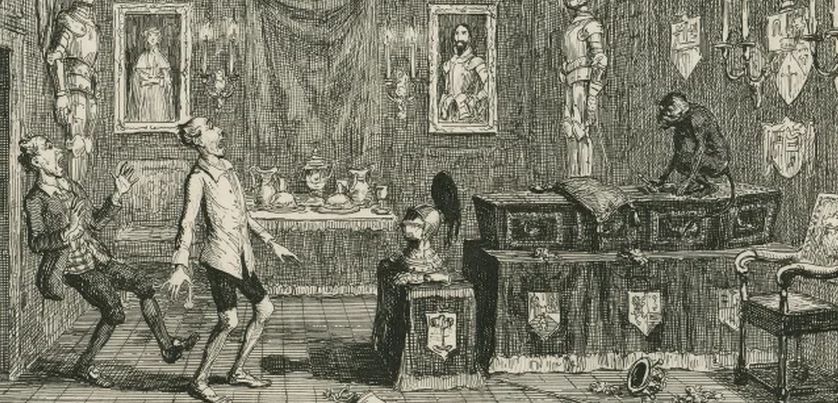 Warning, this story by Sir Walter Scott can be hard going for inexperienced readers due to its use of original dialect and obsolete vocabulary. When a violent Scottish Lord presses a tenant for long outstanding rent, the man borrows the money and returns to pay it. The Lord dies as he hands it over, and the money disappears during the commotion. The Lord’s son doesn’t believe the rent was paid, and demands payment. A mysterious stranger helps the devastated tenant by accompanying him to hell to collect a receipt. Themes: changing times, the supernatural, beware who you travel with. More…
Warning, this story by Sir Walter Scott can be hard going for inexperienced readers due to its use of original dialect and obsolete vocabulary. When a violent Scottish Lord presses a tenant for long outstanding rent, the man borrows the money and returns to pay it. The Lord dies as he hands it over, and the money disappears during the commotion. The Lord’s son doesn’t believe the rent was paid, and demands payment. A mysterious stranger helps the devastated tenant by accompanying him to hell to collect a receipt. Themes: changing times, the supernatural, beware who you travel with. More…
Immortality
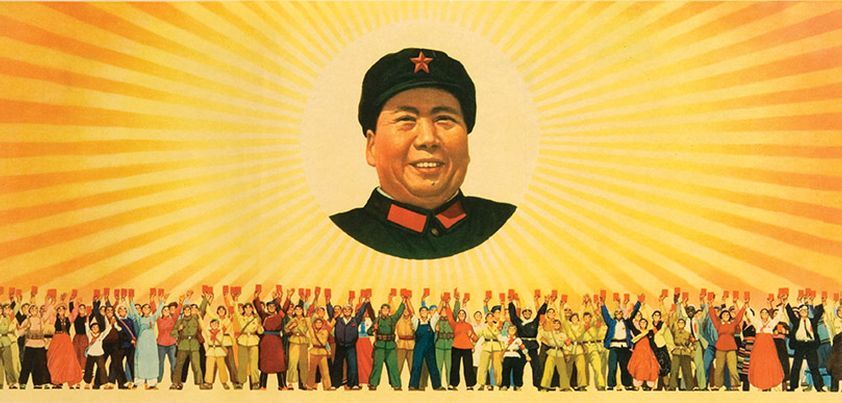 Yiyun Li’s story exploring aspects of China’s transition from empire to communist super-power is unusual in that its point of view is not that of a single character, but rather the collective voice of a rural community. Central themes are lack of power of the individual (symbolized by emasculation), and abuse of power by the ruling classes. Secondary themes are the methods adopted by the Communist Party to consolidate its power (indoctrination through cultism, repression and fear), and the changes taking place as modern technology exposes the masses to Western lifestyles and values. More…
Yiyun Li’s story exploring aspects of China’s transition from empire to communist super-power is unusual in that its point of view is not that of a single character, but rather the collective voice of a rural community. Central themes are lack of power of the individual (symbolized by emasculation), and abuse of power by the ruling classes. Secondary themes are the methods adopted by the Communist Party to consolidate its power (indoctrination through cultism, repression and fear), and the changes taking place as modern technology exposes the masses to Western lifestyles and values. More…
The Man in the Black Suit
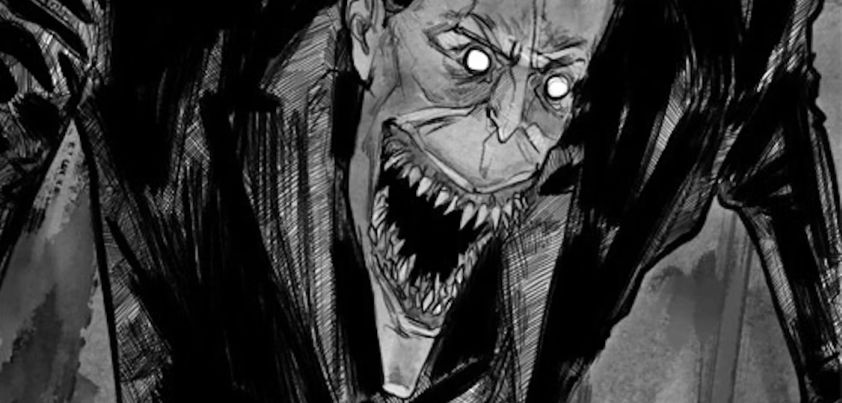 This story from Stephen King builds on a common legend in folklore in which an unsuspecting protagonist is tempted by the devil. King made two changes to the standard plot that result in a truly frightening the tale. First, the devil’s target is an innocent nine-year-old boy. Second, instead of the devil’s usual objective of offering an earthly reward in exchange for the boy’s soul, this devil is hungry and plans to give the poor lad a heavenly reward by eating him. Themes: isolation, innocence, the supernatural, deception, fear, religious belief, life-long trauma, aging and death. More…
This story from Stephen King builds on a common legend in folklore in which an unsuspecting protagonist is tempted by the devil. King made two changes to the standard plot that result in a truly frightening the tale. First, the devil’s target is an innocent nine-year-old boy. Second, instead of the devil’s usual objective of offering an earthly reward in exchange for the boy’s soul, this devil is hungry and plans to give the poor lad a heavenly reward by eating him. Themes: isolation, innocence, the supernatural, deception, fear, religious belief, life-long trauma, aging and death. More…
When the Mice Failed to Arrive
 In 2018, the New York Times dubbed Gerald Murnane “the greatest living English-language writer most people have never heard of.” Now 83, Murnane has remained largely unknown due to his distinctive stream of consciousness writing style. Stories contain frequent changes of perspective from character to character, and between past and present. In When the Mice Failed to Arrive, a storm breaking as a father waits for his son to come home from school triggers memories of the man’s earlier life. Themes include father-son relationships, childhood anxiety, religious parody, awakening sexuality, insecurity, deceit, and what some may consider animal cruelty. More…
In 2018, the New York Times dubbed Gerald Murnane “the greatest living English-language writer most people have never heard of.” Now 83, Murnane has remained largely unknown due to his distinctive stream of consciousness writing style. Stories contain frequent changes of perspective from character to character, and between past and present. In When the Mice Failed to Arrive, a storm breaking as a father waits for his son to come home from school triggers memories of the man’s earlier life. Themes include father-son relationships, childhood anxiety, religious parody, awakening sexuality, insecurity, deceit, and what some may consider animal cruelty. More…
Someone to Talk To
 The major theme of this story by Deborah Eisenberg is the need to be heard. A once up-and-coming concert pianist struggles to deal with a stalled career and failed relationship. Potential salvation arrives with an invitation to perform in an unnamed Latin American country. Patronizing treatment by the concert’s upper-class organizers, a walk through poorer neighborhoods, and the inane behavior of a British radio journalist, emphasize the importance for people of all persuasions to not only speak out, but also be heard and understood. Other themes: loneliness, alienation, elitism, class, poverty, oppression, indifference to the suffering of others. More…
The major theme of this story by Deborah Eisenberg is the need to be heard. A once up-and-coming concert pianist struggles to deal with a stalled career and failed relationship. Potential salvation arrives with an invitation to perform in an unnamed Latin American country. Patronizing treatment by the concert’s upper-class organizers, a walk through poorer neighborhoods, and the inane behavior of a British radio journalist, emphasize the importance for people of all persuasions to not only speak out, but also be heard and understood. Other themes: loneliness, alienation, elitism, class, poverty, oppression, indifference to the suffering of others. More…
The Grand Inquisitor
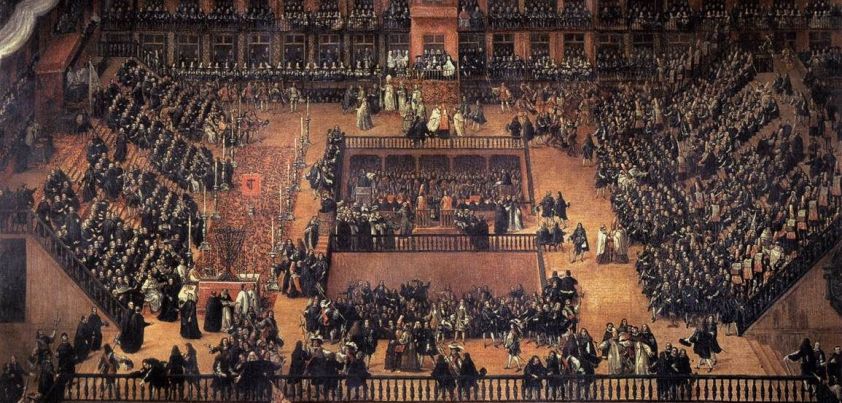 This story is a chapter from Fyodor Dostoevsky’s acclaimed novel, The Brothers Karamazov. Jesus makes a quick visit to Seville amid the suffering of the Spanish Inquisition. When he starts preforming miracles the Grand Inquisitor, a Cardinal, has him arrested. He visits Jesus in his cell and declares that he is no longer welcome on Earth because his message (spiritual freedom and the right to choose good or evil) is at odds with the teachings of the Church (forced belief through miracle, mystery, and authority). Themes include God and religion, free will vs. Catholic authoritarianism, suffering and human weakness. More…
This story is a chapter from Fyodor Dostoevsky’s acclaimed novel, The Brothers Karamazov. Jesus makes a quick visit to Seville amid the suffering of the Spanish Inquisition. When he starts preforming miracles the Grand Inquisitor, a Cardinal, has him arrested. He visits Jesus in his cell and declares that he is no longer welcome on Earth because his message (spiritual freedom and the right to choose good or evil) is at odds with the teachings of the Church (forced belief through miracle, mystery, and authority). Themes include God and religion, free will vs. Catholic authoritarianism, suffering and human weakness. More…
Saint Manuel Bueno, Martyr
 This Miguel de Unamuno story (aka Saint Emmanuel the Good, Martyr) is a memoir by a Spanish woman reflecting on her close connection with a Catholic priest about to be beatified. The outwardly pious man, who was credited with several miracles and spent his life ministering to the people of her remote mountain village, harbored an astonishing secret… he did not believe in God! His life had been a charade for the supposed good of the villagers. Themes include existentialism, self-sacrifice, community, the nature and role of religion, New vs. Old World values, identity, truth vs. ignorance and bliss. More…
This Miguel de Unamuno story (aka Saint Emmanuel the Good, Martyr) is a memoir by a Spanish woman reflecting on her close connection with a Catholic priest about to be beatified. The outwardly pious man, who was credited with several miracles and spent his life ministering to the people of her remote mountain village, harbored an astonishing secret… he did not believe in God! His life had been a charade for the supposed good of the villagers. Themes include existentialism, self-sacrifice, community, the nature and role of religion, New vs. Old World values, identity, truth vs. ignorance and bliss. More…
A. V. Laider
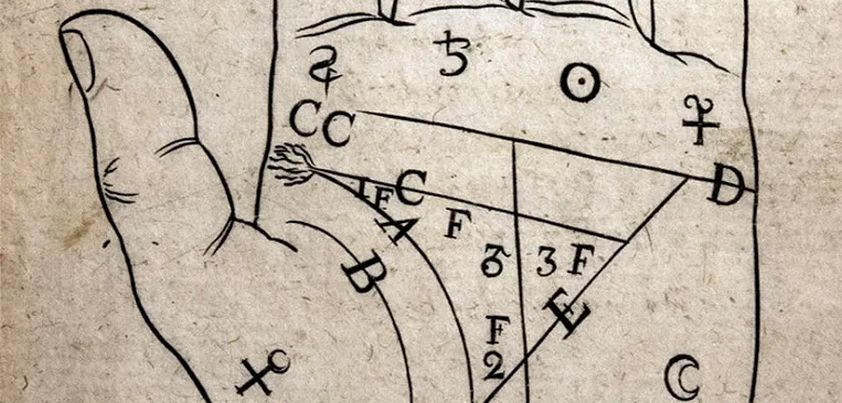 This story by Max Beerbohm raises the philosophical themes of faith vs. reason and free will vs. fate in the context of a conversation between the narrator and a stranger about palmistry. The stranger, a self-proclaimed amateur palm reader, relates how he once failed to prevent a train crash predicted in the palms of four fellow passengers. Too weak-willed to intervene, he let fate take its course and now feels guilty of murder. The sympathetic narrator writes him a consoling letter and, when the two meet again a year later, receives a nasty shock. Other themes include insecurity, guilt, fabulism. More…
This story by Max Beerbohm raises the philosophical themes of faith vs. reason and free will vs. fate in the context of a conversation between the narrator and a stranger about palmistry. The stranger, a self-proclaimed amateur palm reader, relates how he once failed to prevent a train crash predicted in the palms of four fellow passengers. Too weak-willed to intervene, he let fate take its course and now feels guilty of murder. The sympathetic narrator writes him a consoling letter and, when the two meet again a year later, receives a nasty shock. Other themes include insecurity, guilt, fabulism. More…
The Big True
 This story by Dina Nayeri explores the circumstances of a once famous Iranian sitar player who, following his wife’s death and his daughter’s graduation from Harvard, chooses the simple life of a drifter. This and his clumsiness with technology causes a rift with his condescending daughter, who can’t even make time to share a coffee when he visits New York. Fortunately, he finds solace with a like-minded Indian immigrant and other residents sharing a YMCA hostel. Themes include the immigrant experience, cultural differences, generational conflict, friendship, father-daughter relationships, search for identity, loneliness, nostalgia, the Internet. More…
This story by Dina Nayeri explores the circumstances of a once famous Iranian sitar player who, following his wife’s death and his daughter’s graduation from Harvard, chooses the simple life of a drifter. This and his clumsiness with technology causes a rift with his condescending daughter, who can’t even make time to share a coffee when he visits New York. Fortunately, he finds solace with a like-minded Indian immigrant and other residents sharing a YMCA hostel. Themes include the immigrant experience, cultural differences, generational conflict, friendship, father-daughter relationships, search for identity, loneliness, nostalgia, the Internet. More…
Moths in the Arc Light
 In this story by Sinclair Lewis, a successful 1920s businessman becomes infatuated with a secretary he sees from his twelfth story window working in an office across the street. Over time they come to exchange greetings and communicate daily through their windows. When they finally meet, she is not the simple secretary he had expected. She is as driven by corporate success as he is. He finds her a job with better prospects and is surprised when, several months later, she calls him with a request to urgently meet. Themes include infatuation, chauvinism, misogyny, gender stereotypes, ambition, loneliness, depression, sexuality. More…
In this story by Sinclair Lewis, a successful 1920s businessman becomes infatuated with a secretary he sees from his twelfth story window working in an office across the street. Over time they come to exchange greetings and communicate daily through their windows. When they finally meet, she is not the simple secretary he had expected. She is as driven by corporate success as he is. He finds her a job with better prospects and is surprised when, several months later, she calls him with a request to urgently meet. Themes include infatuation, chauvinism, misogyny, gender stereotypes, ambition, loneliness, depression, sexuality. More…
The Best Girlfriend You Never Had
 If you are looking for a story with a traditional plot structure, this work of contemporary fiction by Pam Houston is not for you. The story comprises fourteen anecdotes and observations about the life of a thirty-one-year-old woman who comes to San Francisco seeking order and romantic love. Instead, she finds chaos and frustration. Obsessed with finding the right man, she always seems to identify with the wrong ones. The one man in her life she has strong feelings for calls himself the best girlfriend you never had. Themes: order vs. chaos, friendship vs. romantic love, self-esteem, fear, enlightenment, change. More…
If you are looking for a story with a traditional plot structure, this work of contemporary fiction by Pam Houston is not for you. The story comprises fourteen anecdotes and observations about the life of a thirty-one-year-old woman who comes to San Francisco seeking order and romantic love. Instead, she finds chaos and frustration. Obsessed with finding the right man, she always seems to identify with the wrong ones. The one man in her life she has strong feelings for calls himself the best girlfriend you never had. Themes: order vs. chaos, friendship vs. romantic love, self-esteem, fear, enlightenment, change. More…
The Difference
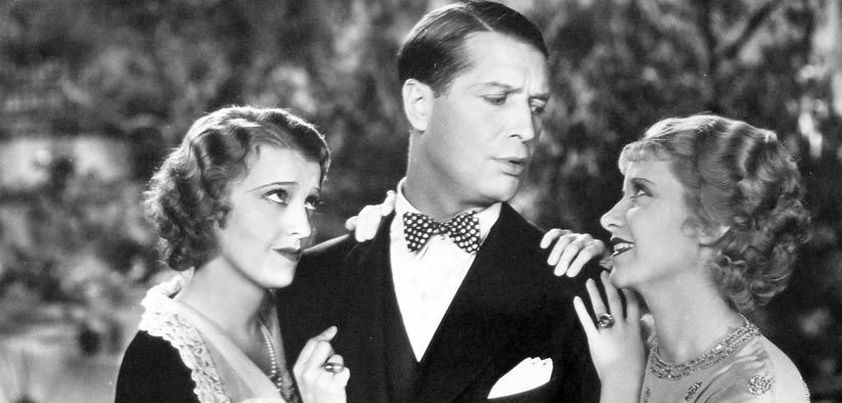 A more apt title for this story by Ellen Glasgow would be The Differences. It explores differences in attitudes to love, marriage and infidelity between men and women, and between women born in the Victorian era and those born in the early 1900s. A middle-aged woman’s calm existence is shattered when she receives a letter from the much younger mistress of her husband of twenty years. She meets the woman, confronts her husband, and initiates a discussion about who loves whom and what is to be done about it. Themes include gender roles, love and adultery, the generation gap, sacrifice. More…
A more apt title for this story by Ellen Glasgow would be The Differences. It explores differences in attitudes to love, marriage and infidelity between men and women, and between women born in the Victorian era and those born in the early 1900s. A middle-aged woman’s calm existence is shattered when she receives a letter from the much younger mistress of her husband of twenty years. She meets the woman, confronts her husband, and initiates a discussion about who loves whom and what is to be done about it. Themes include gender roles, love and adultery, the generation gap, sacrifice. More…
Brownies
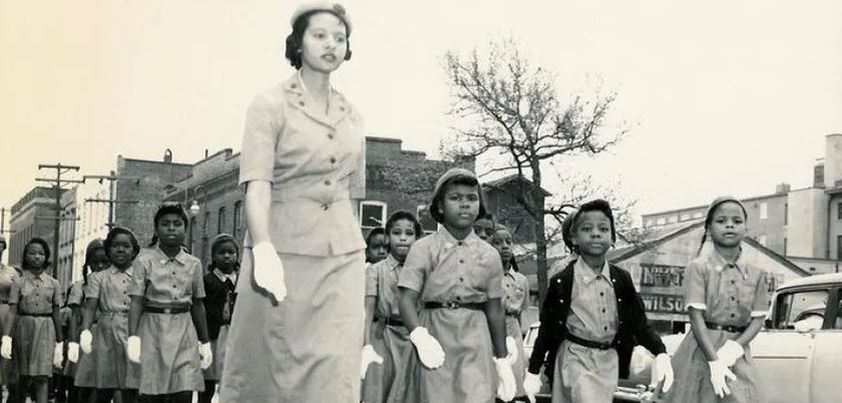 The major theme of this story by ZZ Packer is how racial segregation breeds racial prejudice. At a summer camp, a Brownie troop from a black neighborhood decide to kick the asses of an all-white troop they see exiting a bus. A misunderstanding leads to a confrontation in the shower block, from which the black girls leave in shame. The story ends with the black narrator describing an interaction between her father and a white Mennonite family, and concluding that racism is something mean she cannot stop. Other themes include social class, resentment, anger, revenge, peer pressure.
The major theme of this story by ZZ Packer is how racial segregation breeds racial prejudice. At a summer camp, a Brownie troop from a black neighborhood decide to kick the asses of an all-white troop they see exiting a bus. A misunderstanding leads to a confrontation in the shower block, from which the black girls leave in shame. The story ends with the black narrator describing an interaction between her father and a white Mennonite family, and concluding that racism is something mean she cannot stop. Other themes include social class, resentment, anger, revenge, peer pressure.
Looking for Mr. Green
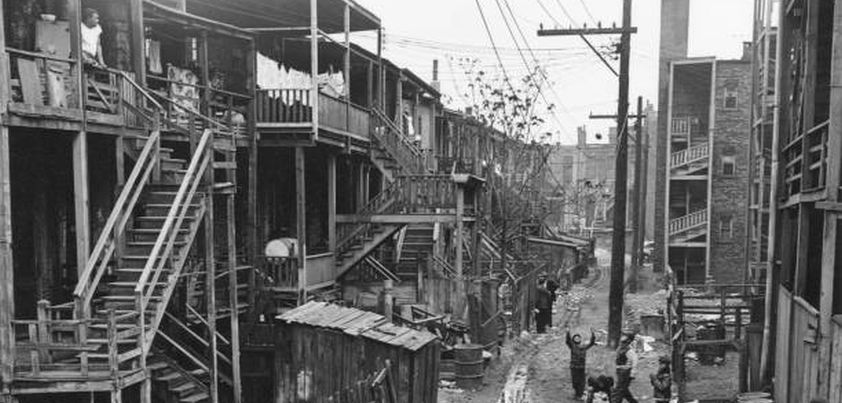 A major theme of this story by Saul Bellow is work ethic. Times are tough in 1930s Chicago. An intellectual white man starts a much-needed job delivering unclaimed welfare checks to people in a depressed black neighborhood. On his first day his younger supervisor implies that, as a city worker, he isn’t expected to “push too hard”. That’s not the way he works: he wants to do well for doing-well’s sake, and goes above and beyond in a quest to find the elusive Mr. Green. Other themes include poverty, race, suspicion, duty, tenacity, identity. More…
A major theme of this story by Saul Bellow is work ethic. Times are tough in 1930s Chicago. An intellectual white man starts a much-needed job delivering unclaimed welfare checks to people in a depressed black neighborhood. On his first day his younger supervisor implies that, as a city worker, he isn’t expected to “push too hard”. That’s not the way he works: he wants to do well for doing-well’s sake, and goes above and beyond in a quest to find the elusive Mr. Green. Other themes include poverty, race, suspicion, duty, tenacity, identity. More…
For Esmé with Love and Squalor
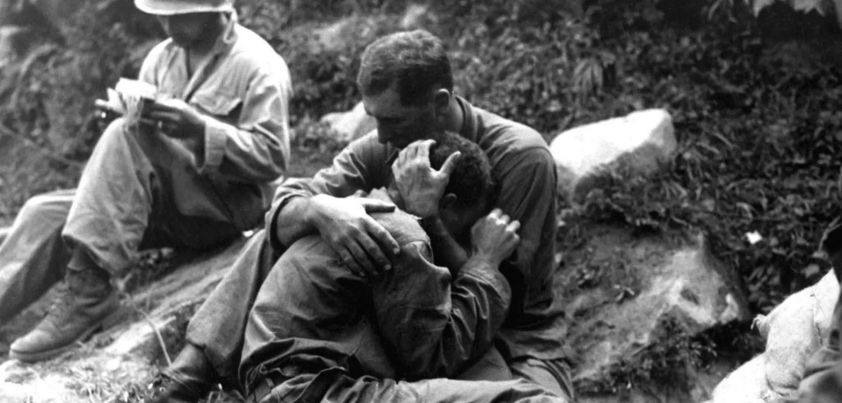 J. D. Salinger’s Esmé is a precocious, orphaned teenage girl whose friendship and compassion help a young American soldier deal with the horrors of war. Salinger’s characterization of the soldier (Staff Sergeant X) in the second part of the story suggests first-hand experience with PTSD. This was misunderstood at the time, as reflected in the comment from Clay’s girlfriend: nobody gets a nervous breakdown just from the war and all. She says you probably were unstable like, your whole goddam life. Major themes: youthful innocence, the brutality of war and its effect on mental health, loss, humanity and hope. More…
J. D. Salinger’s Esmé is a precocious, orphaned teenage girl whose friendship and compassion help a young American soldier deal with the horrors of war. Salinger’s characterization of the soldier (Staff Sergeant X) in the second part of the story suggests first-hand experience with PTSD. This was misunderstood at the time, as reflected in the comment from Clay’s girlfriend: nobody gets a nervous breakdown just from the war and all. She says you probably were unstable like, your whole goddam life. Major themes: youthful innocence, the brutality of war and its effect on mental health, loss, humanity and hope. More…
Holiday
 In this disturbing story from Katherine Porter, a young woman suffering undisclosed “troubles” decides she needs a holiday. On the recommendation of a friend, she visits the farm of a German immigrant family. During her stay, she feels a special connection with a “crippled, badly deformed” serving girl. Later, she is concerned to learn that the girl is the parent’s older daughter who, because of her disabilities, has been consigned to a life of drudgery and is largely ignored by the otherwise loving family. Themes: family, gender roles, the beauty and power of nature, alienation, suffering, life and death, humanity. More…
In this disturbing story from Katherine Porter, a young woman suffering undisclosed “troubles” decides she needs a holiday. On the recommendation of a friend, she visits the farm of a German immigrant family. During her stay, she feels a special connection with a “crippled, badly deformed” serving girl. Later, she is concerned to learn that the girl is the parent’s older daughter who, because of her disabilities, has been consigned to a life of drudgery and is largely ignored by the otherwise loving family. Themes: family, gender roles, the beauty and power of nature, alienation, suffering, life and death, humanity. More…